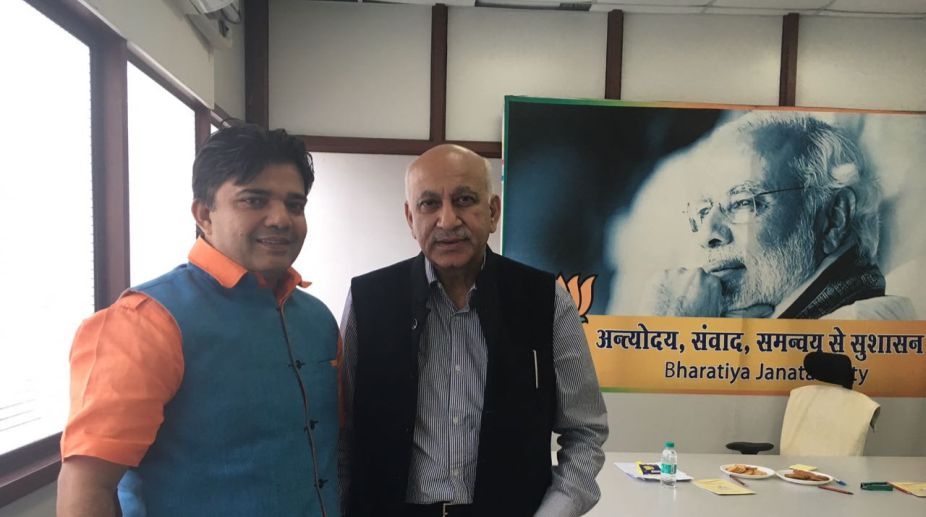Trapped Refugees
The forced deportation of Afghan refugees from Pakistan underscores the grim reality faced by displaced populations who find themselves at the mercy of shifting political priorities.

M J Akhbar (Photo: Facebook)
In a veiled reference to Pakistan, India on Thursday said that governments which offer sanctuary to terrorists are sending an invitation to suicide.
In his keynote address at a conference on “Islam in a Modern Secular State” in Bishkek, Kyrgyzstan, Minister of state for External Affairs M J Akbar said that faith-based terrorists are anti-modern and challenge the nation state, which is the principal building block of the architecture of contemporary stability.
Advertisement
“They believe in faith based space, not nations. They are a danger to Kyrgyzstan as much as to Iraq or Mali or Somalia or India,” Akbar said.
Advertisement
“Governments who offer sanctuary to this evil are sending an invitation to suicide,” he said. “They are as guilty as terrorists.”
Stating that terrorists target human anxiety and coexistence, he said: “They use fear, induced by havoc, to build walls of fear in societies that live by civilisational values of harmony across differences of faith and ethnicity. Terrorists offer despotism as an alternative.”
Though Akbar said that terrorists would lose the war they have begun, he stated that the war was far from over.
“It is a war that must be fought not just on the ground, but also in the mind.”
Akbar said that it is time “to address a pernicious and extremely dangerous phenomenon that has arisen among some Muslim communities: the doctrine of faith supremacy, with its barbaric overtones of terrorist violence, ethnic cleansing and as a collateral disease, gender oppression”.
“Let us be clear. There are no ifs and buts to justify this horrific danger. Long before the terrorists who spread havoc in the name of faith supremacy damage any imagined or manufactured enemy, they are grievously wounding the very essence of Islam, which is, as its name itself, a mission of peace,” he stated.
“Islam is a brotherhood, not a nationhood; it is a humanitarian philosophy, not a tool of self-destructive fantasists.”
Akbar described today’s big challenge as the conflict between faith supremacists and those who believe in faith equality.
Describing acquisition of knowledge as an important principle of modernity, he said that from its its earliest days, Islam spread through regional battlefields, but its true consolidation came only when Muslim communities sought and reached the forefront of knowledge.
“Today, our most urgent responsibility is democratisation of secular knowledge. If we fail in this, we fail our children. We snatch the 21st century out of their grasp.”
Akbar also stressed gender equality and said that this is non-negotiable.
“Women must be in the vanguard of cultural advance and economic growth,” he said.
“Some regressive schools manipulate the law to suppress women. We have to stand up and fight them. Reform is absolutely critical. It is not surprising that violence is the preferred option of barbarians.”
Advertisement